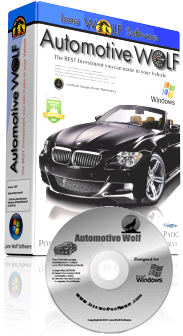|
Windows XP/7/8/10/11
|
 |
 No Risk 30 Day Free Trial |
HOME | INTRO | FEATURES | DOWNLOAD | PURCHASE | SCREEN SHOTS | REVIEWS | CAR CARE TIPS |
| Car Care Tips - Strange Noises When you are Driving |
| The noise you hear while driving can be
caused by various factors. Here are some common sources of noise in
a car: 1. Tire noise: Worn-out or unevenly worn tires can produce increased road noise. Additionally, certain tire models may naturally generate more noise than others. Checking the condition of your tires and ensuring proper inflation can help reduce tire-related noise. 2. Brakes: Squealing or grinding noises when applying the brakes may indicate worn brake pads or rotors. It's essential to have your brakes inspected and replaced if necessary to ensure safe and quiet braking performance. 3. Suspension components: Faulty or worn-out suspension components, such as struts, shocks, or bushings, can cause clunking, rattling, or knocking noises while driving. A thorough inspection by a mechanic can identify and resolve these issues. 4. Engine noise: Unusual noises coming from the engine can indicate problems such as a loose belt, a faulty pulley, or engine components that require maintenance or repair. Consulting a mechanic to diagnose and fix engine-related issues is recommended. 5. Exhaust system: A damaged or corroded exhaust system can result in loud rumbling or hissing noises. Inspecting the exhaust system for leaks or other damage and repairing it if necessary can resolve these issues. 6. Wind noise: Poorly sealed windows, doors, or sunroofs can allow wind to enter the cabin, causing increased noise while driving. Checking for any gaps or seals that need attention and addressing them can help reduce wind noise. 7. Loose or worn parts: Various loose or worn parts in the car's interior or exterior can cause rattling, creaking, or squeaking noises. Identifying and securing or replacing these parts can eliminate the noise. It's important to note that the specific cause of the noise in your car can vary depending on the make, model, and condition of your vehicle. If the noise persists or is accompanied by other symptoms like loss of performance or warning lights, it's recommended to have your car inspected by a qualified mechanic who can diagnose and address the issue properly. |
Easily Track and Manage Maintenance Schedules for any type of Vehicle by Time, Distance or Hours
30 Day FREE Trial
HOME | INTRO | FEATURES | DOWNLOAD | PURCHASE | SCREEN SHOTS | REVIEWS | Videos | FAQ | EULA | CONTACT US | CAR CARE TIPS |
Copyrightę Lone Wolf Software - www.lonewolf-software.com
Automotive Wolf Car Maintenance Software can also be found at :
Car Care | Contact Management | Home Inventory & Management | Backup | Text & Document Organization | Web Site Monitoring | ToDo Lists



